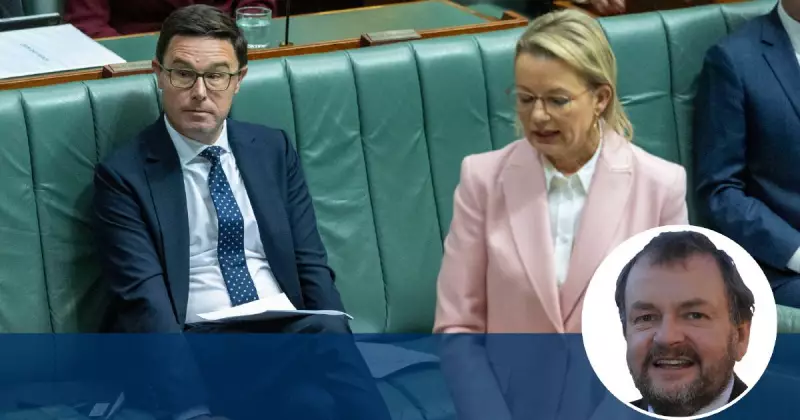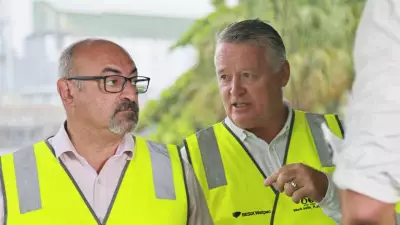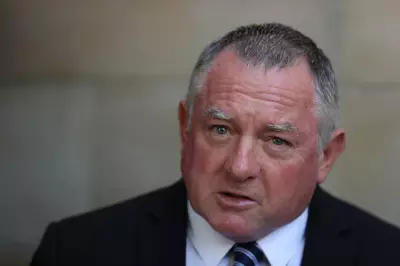
Former Canadian prime minister Pierre Trudeau once observed that timing serves as the essential ingredient in politics. This principle now plays out dramatically in Australia's energy policy debate as the Coalition abandons its commitment to net zero emissions by 2050.
Nationals Force Liberals' Hand on Climate Backflip
The Nationals party successfully pressured their Liberal coalition partners to discard carbon reduction targets, despite opposition energy spokesperson Dan Tehan publicly stating he needed until March 2026 to complete his emissions policy inquiry. This timing proves strategically advantageous for the Nationals in the short term but potentially disastrous for the Coalition's electoral prospects long-term.
The Liberals admitted making this significant policy shift without complete information, raising questions about their decision-making process. Tehan's inquiry appeared destined to reach fossil fuel-friendly conclusions regardless of evidence, defying consensus among Australia's and the world's reputable economists and scientists.
Renewables Offer Cheapest Path Forward
The fundamental reality remains unchanged: renewable energy represents the most affordable form of electricity generation available. The critical question becomes whether Labor's renewable energy initiatives can deliver measurable reductions in household power bills before fossil fuel-funded opposition campaigns can mislead voters.
The Coalition's new policy focuses on extending fossil fuel profitability rather than genuinely addressing electricity costs. This approach enables continued donations from the fossil fuel industry and supports social media propaganda campaigns through Murdoch media channels.
Practical Solutions for Household Savings
Timing becomes crucial in this battle. The government must act swiftly to help households adopt energy-saving technologies. Subsidies for battery storage represent a particularly effective strategy, allowing solar owners to store free midday power for evening use instead of paying grid rates around 30 cents per kilowatt.
Labor's free three-hour midday power window intelligently encourages behavior change by motivating Australians to run appliances like washing machines, dishwashers and pool pumps during free electricity periods. This approach benefits both individual households and the broader grid by smoothing demand peaks.
The program should expand nationally and become permanent. Battery subsidies should extend to households without solar panels, enabling them to charge during free power windows. The government could even allow superannuation access for battery purchases to reduce retirement living costs.
Funding Through Fossil Fuel Subsidy Redirection
Financing these initiatives requires bold action. Rather than attempting to appease hostile interests, the government should redirect the $15 billion annually spent on fossil fuel subsidies toward expanding household and industrial battery support programs.
Personal experience and word-of-mouth recommendations serve as powerful antidotes to misinformation campaigns. When neighbors see friends and family receiving power bill reductions—or even payments—from their solar and battery systems, the fossil fuel industry's narratives lose credibility.
Countering Common Misinformation
Several persistent myths require addressing. Renewables actually lower wholesale electricity prices, though retailers and privatized grid operators often fail to pass these savings to consumers. The government should instruct regulators to set prices monthly rather than annually to increase accountability.
Contrary to propaganda, many farmers embrace renewables, using solar power to replace diesel for water pumping and earning income from hosting wind and solar installations. Marine life frequently thrives around underwater wind turbine foundations, and electric vehicle battery fires remain extremely rare compared to petrol car incidents.
Nuclear energy proposals primarily function as delay tactics to extend fossil fuel profitability. Even if carbon capture technology succeeds, it should remove atmospheric carbon permanently rather than enabling continued emissions.
Former defence force chief Chris Barrie emphasizes climate change as a national security issue, noting that projects like Woodside's Scarborough gas development could expose hundreds of thousands globally to unprecedented heat risks.
The timing of demonstrable power bill reductions could determine whether Australians recognize fossil fuel propaganda before the next election. While political circumstances might enable Labor to proceed with some controversial policies during opposition disarray, the renewable energy transition remains essential regardless of short-term political calculations.






